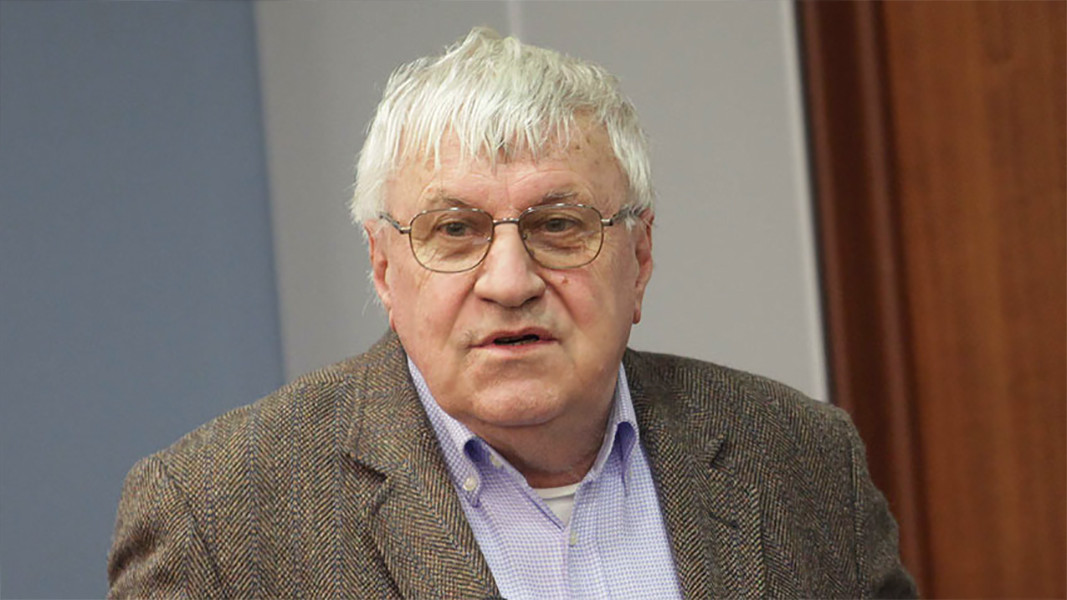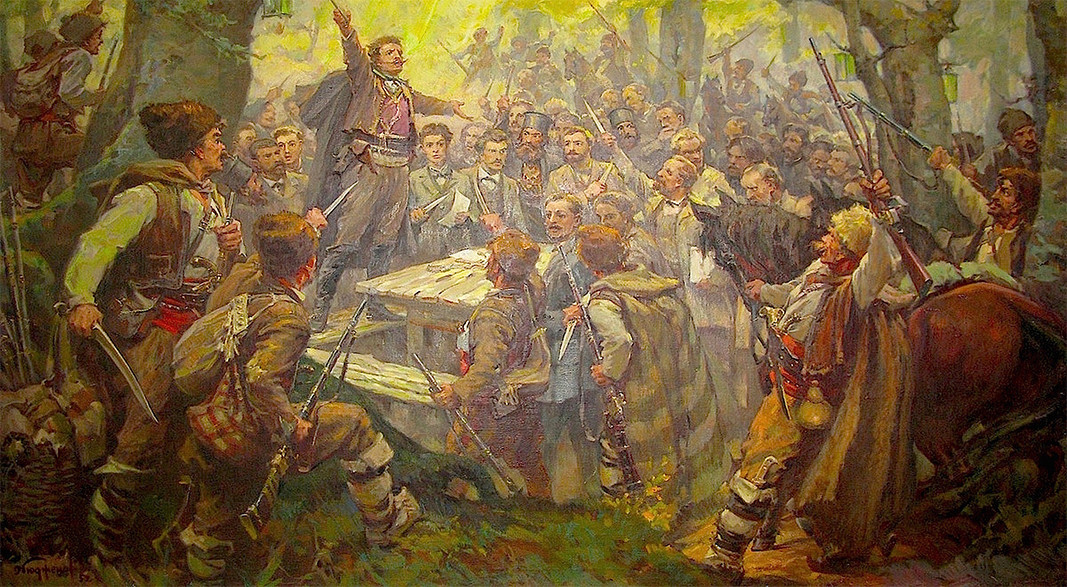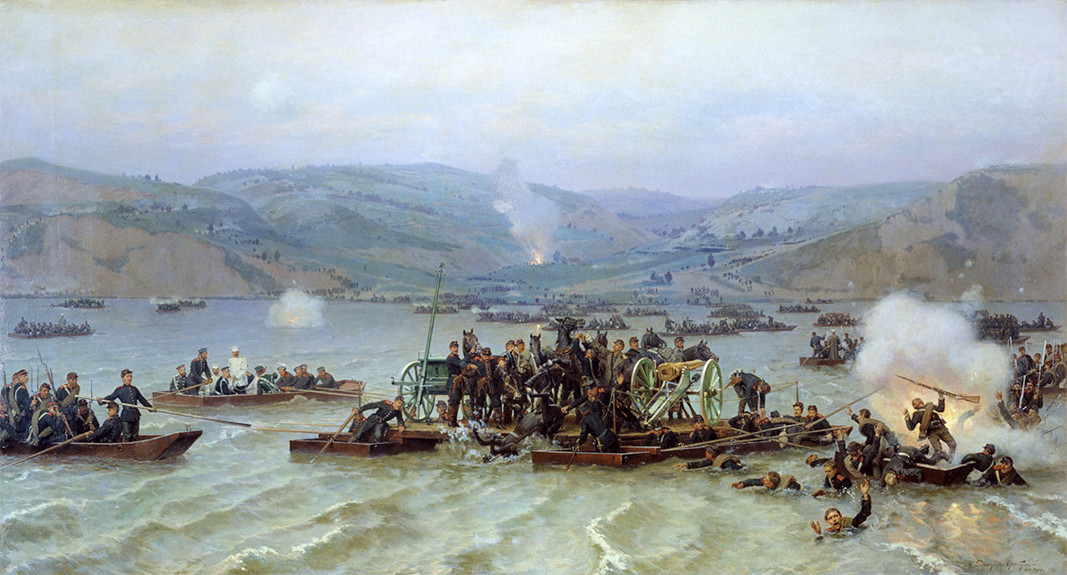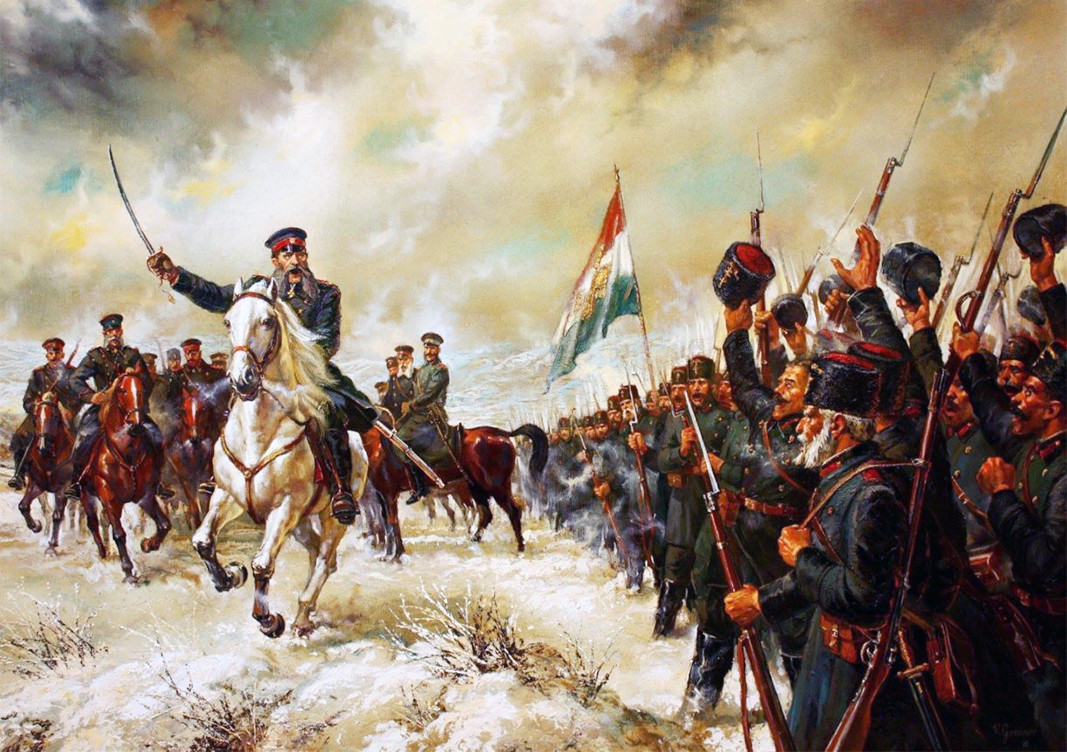On March 3, 1878, the San Stefano Peace Treaty was signed, resurrecting the Bulgarian state after almost five centuries of Ottoman rule. The dream of thousands of Bulgarian intellectuals, enlighteners and revolutionaries, who fought and died for the liberation of Bulgaria, came true.
“We must not forget that the whole world was surprised by the maturity of the Bulgarian society to restore its statehood – stressed historian Professor Andrey Pantev. – Despite all disappointments and unfulfilled dreams, we proved that we were able to govern ourselves and create a system that revives the word Bulgarian, forgotten for centuries during a dark period of Bulgaria’s history marked by the rule of a foreign and hostile authority.”

In the mid-14th century, when Bulgaria was highly fragmented and weakened by the endless battles with the Byzantine Empire, a new strong player appeared on the political stage-the Ottoman Empire. The Bulgarian rulers tried to resist, but in 1396, the Second Bulgarian Kingdom fell under Ottoman rule. Bulgaria was the first Balkan state to fall under Ottoman rule, which continued for five whole centuries.
The Bulgarian people kept on fighting to restore their statehood and organized a series of unsuccessful uprisings in the first decades of the Ottoman rule. Between 1875 and 1876, the Ottoman Empire experienced troubled times. The conquered Balkan people took up arms against the Ottomans. The national liberation movement in Bulgaria culminated in the April Uprising, which broke out on April 20, 1976.

The uprising’s brutal suppression caused a wide international response. The Emperor of Russia Alexander II declared war on the Ottoman Empire, which led to the liberation of Bulgaria from the Ottoman rule.
“The sublime idea of the resurrection of the Bulgarian state is an act of true patriotism- contends Professor Pantev.- There is darkness and light, heroism and insidiousness in Bulgaria’s history. We must remember and commemorate all those who lost their lives during the struggles of national liberation, not those who were hiding and refusing to shelter the Bulgarian rebels and revolutionaries.”

In 1877, the Russian army forced the Danube. Svishtov was the first town liberated from the Ottoman rule. The battle near Shipka Pass continued for more than six months. The heroic battle for Pleven was extremely fierce. In the beginning of 1878, the future Bulgarian capital Sofia was also liberated from the Ottomans. On March 3, 1878, a peace treaty was signed in the town of San Stefano, marking the end of the Russo-Turkish War of 1877-1878 and the five-century Ottoman rule.

“On March 3, we express our gratitude and bow to all known and unknown soldiers who died fighting for the liberation of Bulgaria. Thus, we show that they did not live and die in vain. The world does not have to know what March 3 is. We are the ones who must remember this day. We need to know that Bulgaria has a national anthem, a National Assembly and celebrates the Liberation Day thanks to the sacrifice of our heroes.”
The Day of Liberation was celebrated for the first time in the town of Veliko Tarnovo on February 19, 1878. By decision of Bulgaria’s National Assembly March 3 was proclaimed national day of the Republic of Bulgaria, and has been celebrated since 1991.
English version: Kostadin Atanasov
Photos: Archive, vasilgoranov.com, BGNES
International Labor Day on May 1 in the mass consciousness of Bulgarians is often associated with the period of socialism and the grandiose demonstrations that the older generation of Bulgarians remembers well. However, it has much deeper roots. Its..
Digital nomadism, a lifestyle where people choose remote work so they can travel and live in different environments, is becoming a phenomenon on the way to overturn our ideas about work and way of life. In this regard, Bulgaria offers a palette of..
On 26 and 27 April, Sevlievo in Central Bulgaria is hosting the festival “Seme Balgarsko ”. For its 11 th edition, the organizers have a colourful traditional lineup. “The festival will enable visitors to meet manufacturers of Bulgarian..
International Labor Day on May 1 in the mass consciousness of Bulgarians is often associated with the period of socialism and the grandiose demonstrations..

+359 2 9336 661
